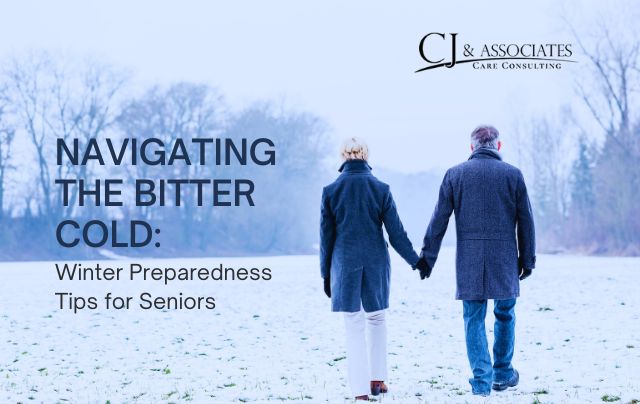As winter blankets the United States with its icy grip, the plummeting temperatures pose unique challenges, especially for our senior population. The bitter cold can exacerbate health issues and increase the risk of accidents. Therefore, ensuring that seniors are adequately prepared for the winter is crucial for their well-being. Here are some essential tips to help seniors navigate the cold season safely:
- Keep Warm Indoors: Encourage seniors to maintain a warm indoor environment. Set the thermostat to a comfortable temperature and make sure heating systems are functioning optimally. Provide warm blankets and cozy clothing to help combat the chill.
- Layering Clothing: Dressing in layers is an effective way for seniors to regulate their body temperature. This allows them to add or remove clothing according to their comfort, preventing overheating or excessive cold exposure.
- Hydration Matters: Cold weather can lead to dehydration as the body might not signal thirst as effectively. Ensure that seniors are staying hydrated by drinking warm beverages like herbal teas and soups. Hydration is essential for maintaining overall health.
- Slip-Resistant Footwear: Winter brings the added risk of slipping on icy surfaces. Make sure seniors have sturdy, slip-resistant footwear to provide better traction on slippery sidewalks and driveways.
- Adequate Nutrition: A well-balanced diet is vital for seniors, especially during winter. Foods rich in vitamins and minerals help boost the immune system, providing extra protection against cold-related illnesses.
- Regular Exercise: Encourage seniors to engage in light exercises to promote circulation and warmth. This could include indoor exercises, yoga, or even short walks on clear, non-slippery paths when weather permits.
- Emergency Preparedness: Prepare for unexpected events, such as power outages or extreme weather conditions. Seniors should have an emergency kit that includes essentials like medications, non-perishable food, warm clothing, and a flashlight.
- Stay Connected: Winter can bring isolation, especially for seniors. Encourage regular check-ins from family, friends, or neighbors to ensure they are safe and provide companionship.
- Regular Health Check-ups: Winter can exacerbate existing health issues. Schedule regular health check-ups to monitor and address any health concerns promptly.
- Safe Transportation: If seniors need to go out, ensure they have safe transportation. Clear snow and ice from driveways and sidewalks and consider alternatives like public transportation or assistance from neighbors.
Winter can be a beautiful season, but it requires careful preparation, especially for seniors. By taking these proactive measures, we can ensure that our elderly loved ones not only endure but also enjoy the winter months in comfort and safety. Stay warm, stay connected, and stay prepared!






